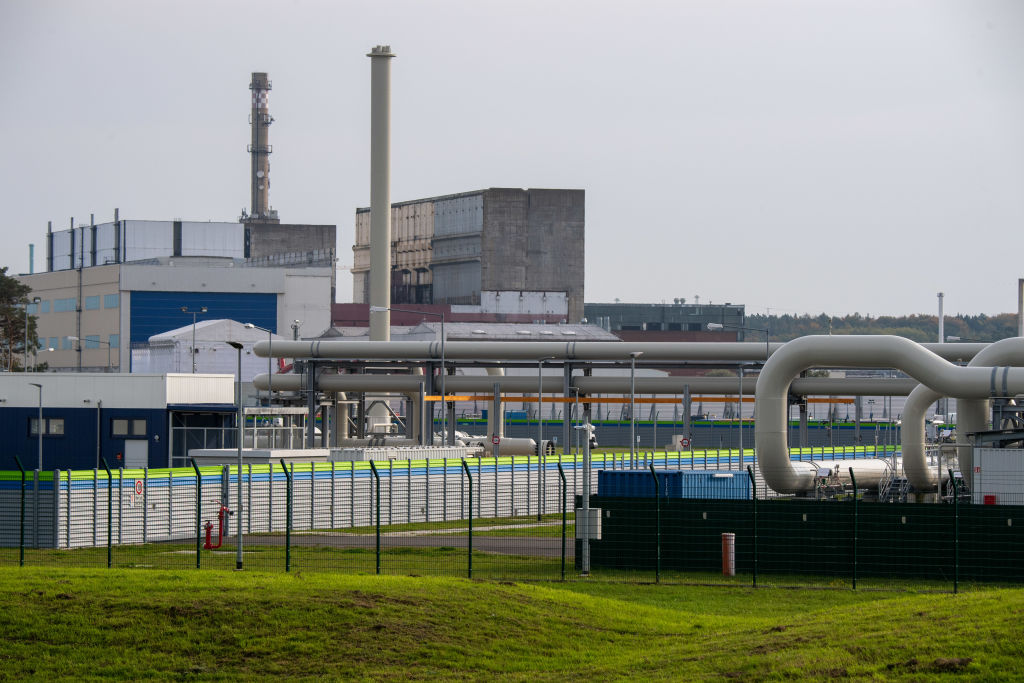Ted Cruz has been blocking State Department nominations for months and it all has to do with a gas pipeline in Europe called Nord Stream 2.
While Cruz’s blockade is almost certainly politically motivated, and although he has expressed opposition to individual nominees, the stated reason for imposing a blanket hold is to force the Biden administration to reimpose sanctions on Nord Stream 2. The pipeline is the most controversial energy project in the world, as it is entangled in some intricate energy geopolitics.
Nord Stream 2 is an offshore natural gas pipeline that runs from Russia to Germany. Since it goes through the Baltic Sea, the pipeline bypasses traditional transit countries like Ukraine and Poland. And the fact that Russia is involved means this is about much more than business.
“Nord Stream 2 is being advanced by Putin’s Kremlin not for commercial reasons, but rather to advance Moscow’s malign geopolitical strategy in Europe,” Dr. Benjamin L. Schmitt, Senior Fellow at the Center for European Policy Analysis, told the Signal. “In particular, the project is being advanced to circumvent existing natural gas transit routes via Ukraine, a country against which Russia is currently waging war.”
The concern is that Ukraine will suffer economically due to the loss of transit fees that will occur when Nord Stream 2 allows Russian gas to bypass the country. There are also fears that Ukraine’s national security will be further eroded when the Russians are no longer reliant on Ukraine for transporting gas. Many of the current pipelines are located near the Donbas, a region where Russia has been waging a proxy war against Ukraine since 2014. Those pipelines act as a disincentive for Russia to escalate the fighting, but with Nord Stream 2 that disincentive is gone.
“Without Russia’s dependence on the Ukrainian gas transit system for delivery of its gas to Europe, some of which is in close physical proximity to the fighting in Eastern Ukraine, there would be a reduction in strategic deterrence against any potential future expansion of Moscow’s aggressive behavior in the Donbas or elsewhere in Ukraine,” said Schmitt.
There are also broader concerns about the gas ties between Russia and Europe. While Russia is not as powerful as it was during the Soviet days, possessing a nominal GDP the size of Italy’s, Europe’s reliance on Russian energy creates a major source of leverage for Moscow. Indeed, the European Union gets about 50 percent of its natural gas imports from Russia. If Moscow wants to pressure Europe, they can simply turn off the gas (or threaten to do so). This weaponization of natural gas exports is something they’ve done in the past with lethal consequences, and we Texans can attest to the dangers of losing gas in the middle of a winter freeze.
Furthermore, there are concerns about the political corruption that accompanies these kinds of energy projects, especially in Germany. Former German Chancellor Gerhard Schröder is the Chairman of the Shareholders Committee of Nord Stream 2; for some perspective imagine if a former American president sat on the board of a Chinese company (although with the previous president it’s not that difficult to imagine).
“The advancement of energy infrastructure projects is also used by the Kremlin to spread its campaign of strategic corruption and elite capture trends in the West, all while endangering the security of energy supply for the European Union, and undermining the democratic resilience of the Transatlantic community in the process,” said Schmitt. “The fact that the Kremlin can use energy infrastructure and resources to undermine national security interests and political cohesion across the Transatlantic community should be concerning to anyone who cares about our collective security.”
While the Biden administration previously called Nord Stream 2 a “bad deal for Europe,” it ultimately decided to waive sanctions as part of a deal with Germany. The White House determined that improving relations with Berlin, which had deteriorated under the Trump administration, was more important. There also may have been concerns that sanctions on Nord Stream 2 could result in other countries enacting similar sanctions on American businesses.
While the pipeline has been completed, it still needs regulatory approval from German and European regulators. And sanctions aren’t completely off the table. As part of the agreement, both Washington and Berlin pledged to impose new sanctions “should Russia attempt to use energy as a weapon or commit further aggressive acts against Ukraine.”
There are already concerns that Russia is weaponizing gas and exploiting the ongoing energy crisis in Europe. Indeed, gas flows through one of the major pipelines from Russia to Western Europe have stopped, leading to accusations that Moscow is doing this to pressure Germany into quickly approving Nord Stream 2.
Russia’s alleged energy strong-arming may ironically create pressure on the Biden administration to reimpose sanctions on Nord Stream 2. However, the Biden administration will also want to avoid caving to Ted Cruz, lest it encourages senators to hold nominees hostage to get what they want. Like much of foreign policy, there appear to be no easy answers.
Photo: Stefan Sauer/picture alliance via Getty Images
William serves as the Washington Correspondent for the Texas Signal, where he primarily writes about Congress and other federal issues that affect Texas. A graduate of Colorado College, William has worked on Democratic campaigns in Texas, Colorado, and North Carolina. He is an internet meme expert.





